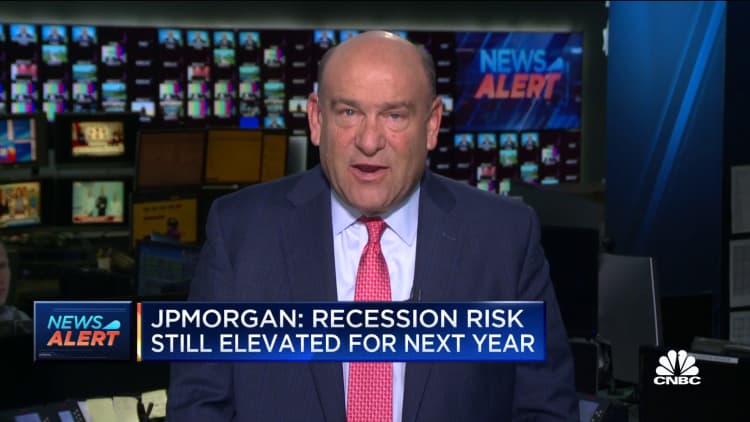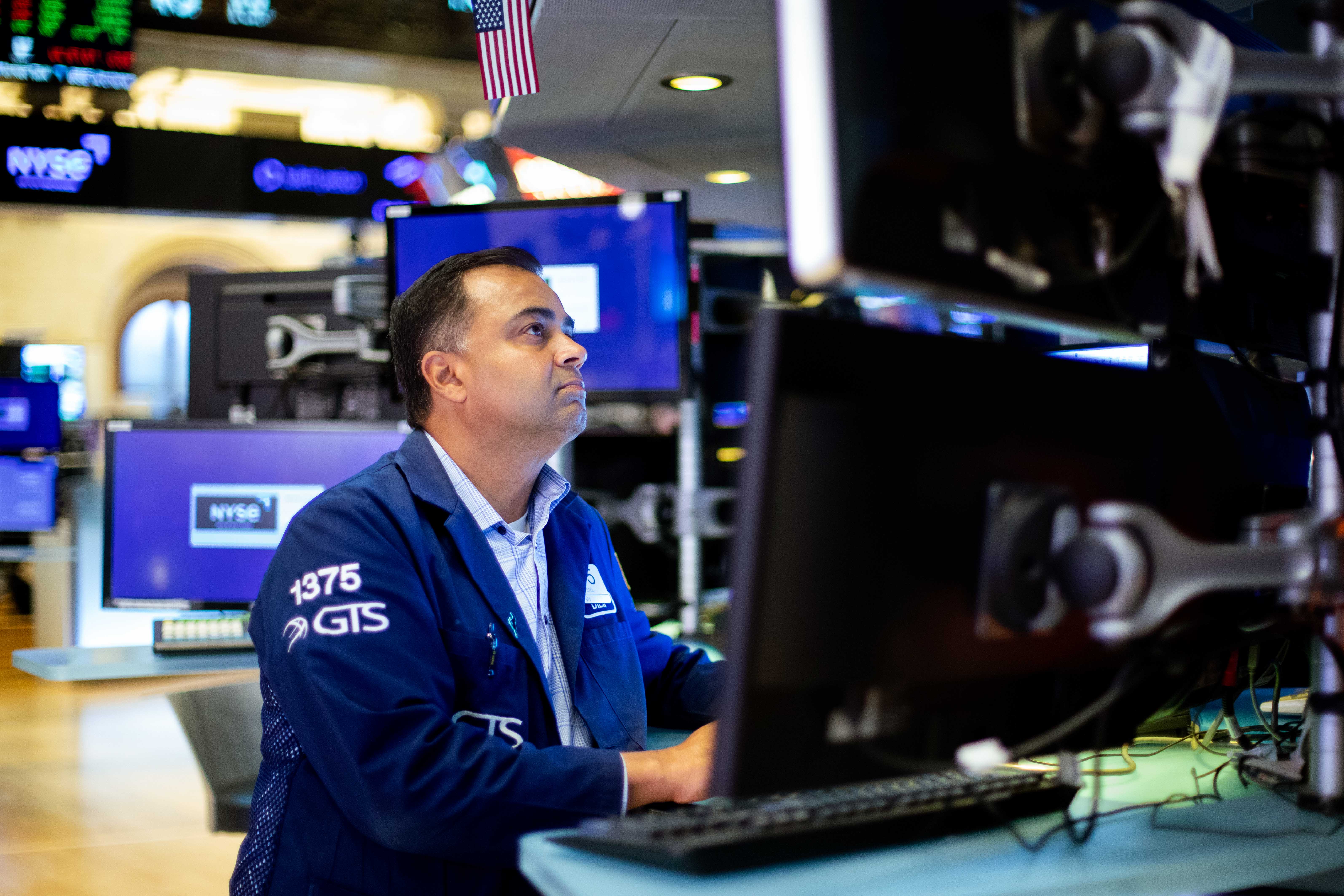JPMorgan backs off recession call even with ‘very elevated’ risks

JPMorgan Chase economists on Friday bailed on their recession call, joining a growing Wall Street chorus that now thinks a contraction is no longer inevitable.
While noting that risks are still high and growth ahead is likely to be slow, the bank’s forecasters think the data flow indicates a soft landing is possible. That comes despite a series of interest rate hikes enacted with the express intent of slowing the economy, and several other substantial headwinds.
Michael Feroli, chief economist at the nation’s largest bank, told clients that recent metrics are indicating growth of about 2.5% in the third quarter, compared to JPMorgan’s previous forecast for just a 0.5% expansion.
“Given this growth, we doubt the economy will quickly lose enough momentum to slip into a mild contraction as early as next quarter, as we had previously projected,” Feroli wrote.
Along with positive data, he pointed to the resolution of the debt ceiling impasse in Congress as well as the containment of a banking crisis in March as potential headwinds that have since been removed.
Also, he noted productivity gains, due in part to the broader implementation of artificial intelligence, and improved labor supply even as hiring has softened in recent months.
Rate risk
However, he said risk is not completely off the table. Specifically, Feroli cited the danger of Fed policy that has seen 11 interest rate hikes implemented since March 2022. Those increases have totaled 5.25 percentage points, yet inflation is still holding well above the central bank’s 2% target.
“While a recession is no longer our modal scenario, risk of a downturn is still very elevated. One way this risk could materialize is if the Fed is not done hiking rates,” Feroli said. “Another way in which recession risks could materialize is if the normal lagged effects of the tightening already delivered kick in.”
Feroli said he doesn’t expect the Fed to start cutting rates until the third quarter of 2024. Current market pricing is indicating the first cut could come as soon as March 2024, according to CME Group data.
Market pricing also points strongly toward a recession.
A New York Fed indicator that tracks the difference between 3-month and 10-year Treasury yields is pointing to a 66% chance of a contraction in the next 12 months, according to an update Friday. The so-called inverted yield curve has been a reliable recession predictor in data going all the way back to 1959.
Changing mood
However, the mood on Wall Street has changed about the economy.
Earlier this week, Bank of America also threw in the towel on its recession call, telling clients that “recent incoming data has made us reassess” the forecast. The firm now sees growth this year of 2%, followed by 0.7% in 2024 and 1.8% in 2025.
Goldman Sachs also recently lowered its probability for a recession to 20%, down from 25%.
Federal Reserve GDP projections in June pointed to respective annual growth levels ahead of 1%, 1.1% and 1.8%. Chairman Jerome Powell said last week that the Fed’s economists no longer think a credit contraction will lead to a mild recession this year.
—CNBC’s Michael Bloom contributed.


